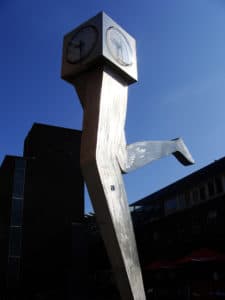
The Court of Appeals found that the length of the delay was over five years and one year is presumptively prejudicial especially in the case of a DUI where the investigation is generally finished within hours of the arrest. The reason for the delay does not necessarily rest primarily with the defendant in the State’s 15-month delay between arrest and accusation, a subsequent 6-month delay in responding to discovery, a 3-year delay in the Trial Court’s ruling on the Intoxilyzer 5000 computer source code motion for out of state subpoena. The Trial Court must determine whether the Defense Counsel’s leaves of absence delayed the trial of the case. The Filing of Motions by Defendant and seeking discovery does not mean that delay can be weighed against Defendant. The Trial Court must determine whether the Defendant timely asserted his right to a Constitutional Speedy Trial in “Due Course.” Even though the record supports a finding of no prejudice the presumed prejudice of a five-year delay should be taken into account in the balancing test.
This is a very extensive and thorough analysis of the issue of Constitutional speedy trials in DUI cases and is certainly a must-read for any lawyers that practice in Fulton County where arguably all DUI cases are unconstitutionally delayed with initial court appearance routinely occurring over two years from arrest.
-Author: George Creal

